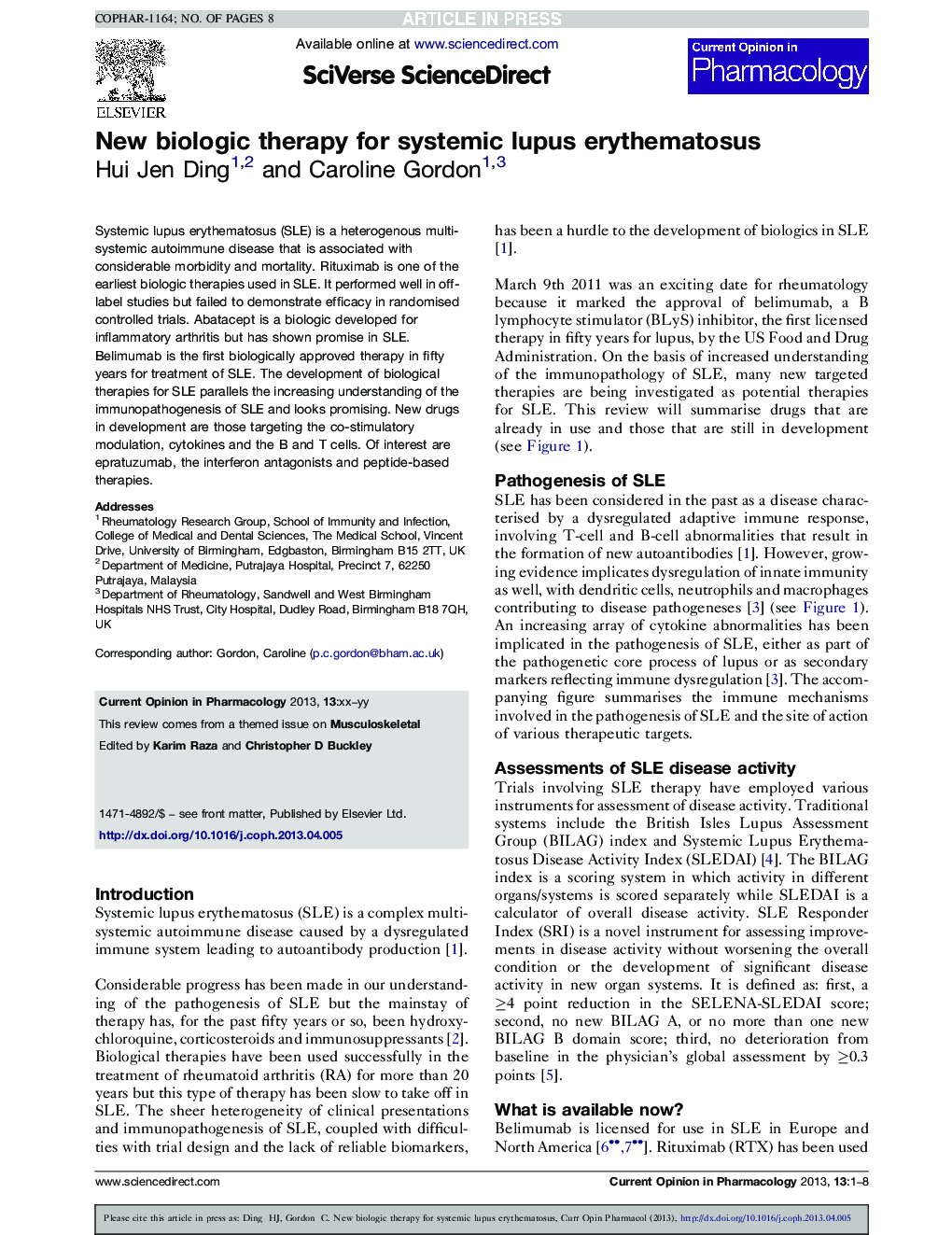| Article ID | Journal | Published Year | Pages | File Type |
|---|---|---|---|---|
| 5826287 | Current Opinion in Pharmacology | 2013 | 8 Pages |
Abstract
Systemic lupus erythematosus (SLE) is a heterogenous multi-systemic autoimmune disease that is associated with considerable morbidity and mortality. Rituximab is one of the earliest biologic therapies used in SLE. It performed well in off-label studies but failed to demonstrate efficacy in randomised controlled trials. Abatacept is a biologic developed for inflammatory arthritis but has shown promise in SLE. Belimumab is the first biologically approved therapy in fifty years for treatment of SLE. The development of biological therapies for SLE parallels the increasing understanding of the immunopathogenesis of SLE and looks promising. New drugs in development are those targeting the co-stimulatory modulation, cytokines and the B and T cells. Of interest are epratuzumab, the interferon antagonists and peptide-based therapies.
Related Topics
Life Sciences
Neuroscience
Cellular and Molecular Neuroscience
Authors
Hui Jen Ding, Caroline Gordon,
